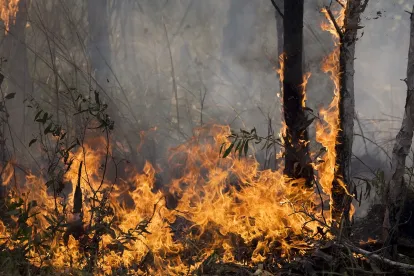As you have no doubt seen in the news, and may have even experienced first-hand, there have been extreme weather conditions throughout the country, including fires, hurricanes, tornadoes, and floods. When natural disasters strike and employees cannot work because of them, companies are faced with numerous employment-related issues that require immediate attention. In addition to various federal laws being implicated, including those below, state-specific employment laws may also be triggered, and a unionized workforce may also prompt additional considerations.
Non-Exempt Employee Pay
The Federal Fair Labor Standards Act (“FLSA”) sets minimum wage and overtime rules for non-exempt employees, and these employees are usually paid by the hour. Because non-exempt employees only need to be paid for their hours actually worked, if a non-exempt employee cannot make it to work or the employer temporarily closes its business due to a natural disaster, the employer is not required to pay the non-exempt employee. There is a limited exception to this rule when non-exempt employees are paid a fixed salary for fluctuating workweeks.
In addition, if non-exempt employees are required to spend time waiting to perform work, either on the company’s premises or off-site, that time is compensable. For example, if an employee is required to remain at the office until the company decides whether to close early due to bad weather, that time is compensable. Further, if an employee is required to remain on call, either on the company’s premises or close by such that he/she cannot use the time for his/her own purposes, that time is compensable under the FLSA.
When considering additional state-specific laws that may apply, California’s reporting time pay obligations must be reviewed. Typically, if an employee is required to report to work and does report, but is furnished less than half of his/her usual day’s work, the employer is required to pay the employee “reporting time pay.” However, reporting time pay is not required when public utilities fail or work is interrupted by natural disasters.
Exempt Employee Pay
When it comes to exempt employees under the FLSA, they must be paid their full salary for any week in which they perform any work. If the employer only closes for part of the week, and the exempt employee performs some work during the remainder of the week, they must be paid their full salary for that week. If the employer closes for the full week, and the exempt employee does not perform any work that week, they need not be paid. Adding yet another wrinkle, if the company is open for business, yet the exempt employee cannot make it to work due to transportation issues as a result of inclement weather, this will likely be considered an absence for personal reasons and a deduction for the full-day absence may be made from the employee’s salary. However, if the absence for personal reasons is only a partial-day absence, the salary deduction cannot be made.
Accommodations and Leaves of Absence
Employers should be prepared to address accommodation and leave of absence requests if employees or their family members suffer a serious health condition or disability as a result of a natural disaster.
The Family and Medical Leave Act (“FMLA”) entitles eligible employees of covered employers to take 12 weeks of unpaid, job-protected leave to care for themselves or certain family members with a serious health condition. Further, the Americans with Disabilities Act (“ADA”) requires employers to reasonably accommodate employees with a physical or mental disability, unless doing so would create an undue hardship, which is often difficult for employers to prove.
For those employees called upon to serve as relief workers, they may be protected by the Uniformed Services Employment and Reemployment Rights Act of 1994 (“USERRA”). USERRA affords employees significant protection based on their membership in the armed forces. Several states have also modeled their laws after USERRA.
In terms of state-specific laws that may impose more onerous burdens on the employer, California, for example, requires even employers with only five or more employees to comply with its California Family Rights Act (“CFRA”). Similar to the FMLA, the CFRA provides unpaid, job-protected leave for serious health conditions.
Benefits
When disaster strikes, employers should check their plan documents and/or speak with their insurance representative to determine whether, and for how long, employees may be covered by any health plan in place. Employers will likely also be faced with the issue of whether to pay their employees’ portion of the premiums.
For those employees who have taken a leave of absence as a result of a serious health condition or disability caused by a natural disaster, the FMLA requires that health insurance coverage be continued. Health insurance must also be maintained during USERRA leave.
When it comes to employees who are laid off as a result of a natural disaster, employers should visit their state unemployment compensation website to determine eligibility. If employees are not eligible for state-provided unemployment compensation, the Federal Disaster Unemployment Assistance program may apply.
WARN
Companies should also consider whether the Federal Worker Adjustment and Retraining Notification Act (“WARN”), and any state-specific “mini-WARN” acts, are triggered if there is a mass layoff, closure, or even a temporary shutdown (depending on the length of time), as a result of a natural disaster.
The Federal WARN requires employers with 100+ employees to notify their employees 60 days in advance of these events, unless the events are a direct result of a natural disaster, such as a flood, earthquake, drought, storm, tsunami, or other similar event. It is the employers’ burden to prove. In such situations, the notification may be reduced to less than 60 days, but notice must still be given as soon as practicable.
OSHA
The Occupational Safety and Health Administration (“OSHA”) requires employers to provide safe and healthful working conditions. Companies should strongly consider whether requiring employees to come into work during a natural disaster could pose safety concerns and/or prompt employees to file a complaint with OSHA.
Takeaways
In sum, employers should take steps sooner rather than later to familiarize themselves with the federal and state laws, and consult with experienced employment counsel, so they are fully prepared to address these issues before the next disaster strikes.




 />i
/>i
